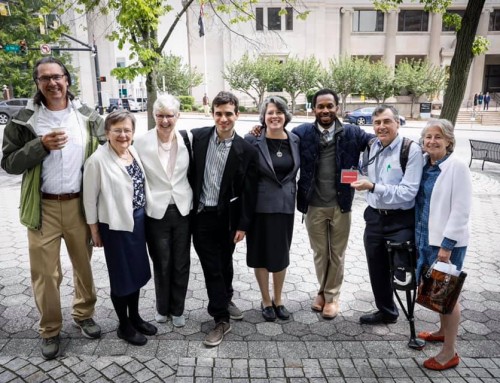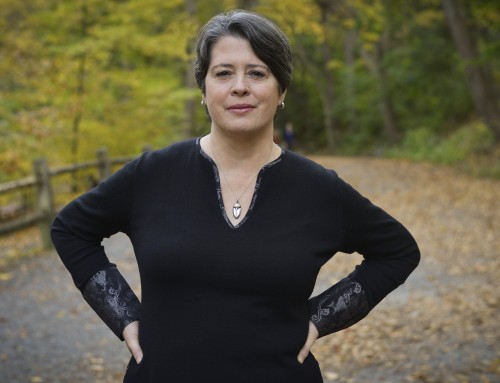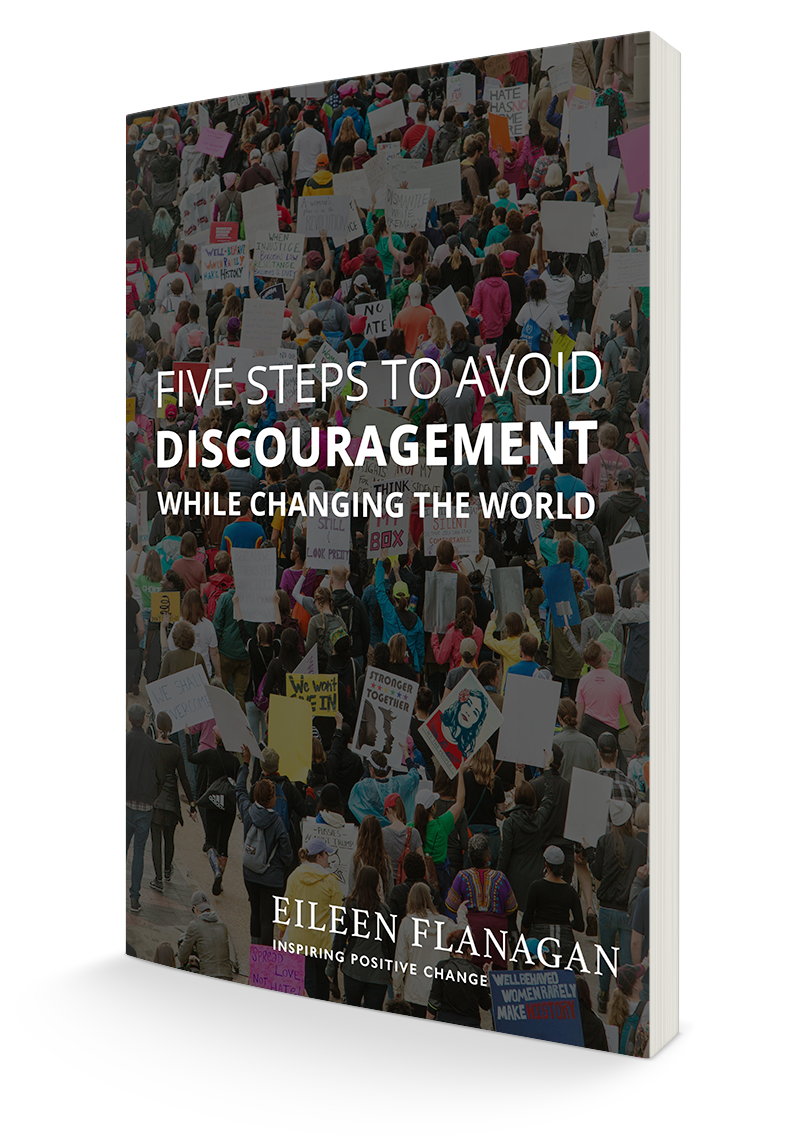 It’s that time of the year again. There are “tiny tots with their eyes all aglow, folks dressed up like Eskimos,” and messages in meeting betraying the mixed feelings Quakers have about Christmas. Two weeks ago several messages focused on consumerism, the role a material gift can play in expressing love, and the fact that we’re destroying the planet by buying so much stuff we don’t need and dumping it in the landfill afterwards. Last week there were a greater variety of messages. One reminded us that for most of its history, Germantown Friends School was open on Christmas like any other day because historically Quakers believed that every day was sacred, a principle that might be lost if we made a big fuss on one or two days. We also heard about a local choir where a former director, with some Jewish ancestry, thanked the Jewish members every year for their willingness to sing Christian songs in December, something the current director doesn’t do. It got me thinking, again, about the whole messy business of living in a diverse society—not to mention a diverse congregation.
It’s that time of the year again. There are “tiny tots with their eyes all aglow, folks dressed up like Eskimos,” and messages in meeting betraying the mixed feelings Quakers have about Christmas. Two weeks ago several messages focused on consumerism, the role a material gift can play in expressing love, and the fact that we’re destroying the planet by buying so much stuff we don’t need and dumping it in the landfill afterwards. Last week there were a greater variety of messages. One reminded us that for most of its history, Germantown Friends School was open on Christmas like any other day because historically Quakers believed that every day was sacred, a principle that might be lost if we made a big fuss on one or two days. We also heard about a local choir where a former director, with some Jewish ancestry, thanked the Jewish members every year for their willingness to sing Christian songs in December, something the current director doesn’t do. It got me thinking, again, about the whole messy business of living in a diverse society—not to mention a diverse congregation.
Of course, I’ve written about all this before. A quick search of my own blog brought 30 posts that mention Christmas. Most often they bemoan the consumerism issue and how skilled my children are at negotiating at this time of year. On the multicultural issue, a few years ago, I wrote the following in a piece called Advent, and it feels worth repeating:
The gap between the commercial and spiritual aspects of Christmas was evident in a story I heard this morning on CNN. Apparently Chicago’s Christmas Fest will not be airing ads for the film The Nativity Story and has dropped the filmmaker as a sponsor because a film about Jesus’ origins might be offensive to non-Christians. The city is widely being made fun of, since it is after all a Christmas festival. But the incident seems very revealing to me. Very few people seem concerned that we are forcing Jews, Muslims, and other non-Christian Americans to endure non-stop Christmas music and shopping advertisements featuring red. I supposed it’s assumed that shopping is a universal value in America. We all worship at the mall. The Chicago Christmas Fest, which is really a market featuring vendors from all over, was just an expression of the shopping religion we all presumably share. But Jesus…he’s dangerous. It reminds me of a story I heard from one of the volunteer Santas at a city zoo. Santa usually appears in December with the reindeer, but when one Santa suggested they bring in the camels to symbolize the wise men of the nativity story, the zoo said that might offend some zoo goers. Apparently it hadn’t occurred to them that Santa might offend people.
I really don’t have an easy answer here. I believe in respecting other traditions and in being sensitive, especially when you’re the majority. I’m disturbed, for example, that Wal-mart has given up having its cashiers say “Happy Holidays” and has reverted to “Merry Christmas.” There seems to be something arrogant in the assumption that it’s too politically correct to notice that we’re not all Christian. On the other hand, Chicago seems to have gotten it wrong too. It’s hypocritical to embrace the revenue of Christmas while discouraging the reverence.
It occurs to me this year that the Quaker principle of living our values all year long might be applicable here, too. Perhaps if we really talked openly about our spiritual journeys all year–and listened respectfully to the experiences of others all year–we wouldn’t be in such confusion every December (in our meeting, as well as in the wider culture).







When my children were small, there was tension between the consumerist Christmas celebrations of their father’s family and my own desire for a spiritually meaningful Chanukah. One of the best decisions I made about how to resolve that tension was to make Chanukah a holiday without presents. We lit candles, sang blessings and songs, played dreidel, and read aloud from a collection of hilarious children’s Chanukah books (our favorite was Eric Kimmel’s HERSCHEL AND THE CHANUKAH GOBLINS). Years later, the kids admitted they liked Chanukah better. We are all so hungry for inner nourishment.
Thanks, Deborah. That’s a lovely example.
Just checking in to let you know that I found your blog recently after buying your book. I have gone back and read some older posts. I *Love* your blog. I am a "convinced" Quaker and so much of what you say resonates for me 🙂
Thanks, Sharon!